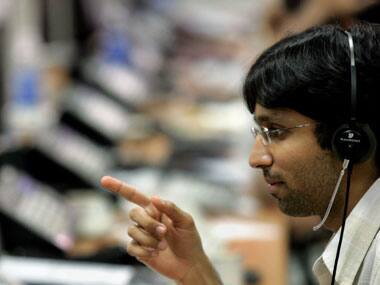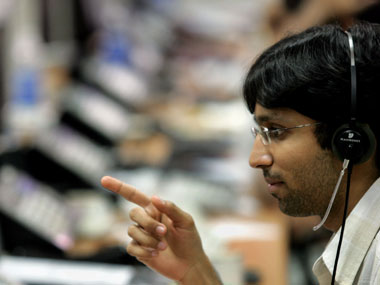Corporate India has suddenly woken up to the lack of reforms by the UPA government. The farce over the retail FDI issue has all corporate bodies up in arms on the lack of political will on reforms.
Corporate India is worried about the government’s commitment to the economy given its political infighting.
The reason corporate India is worried is that the economy is suddenly looking vulnerable in the face of global and domestic issues.
Capital markets are in the fourth year of a bear phase, the Indian rupee has fallen by 15 percent over the last four months and corporate profitability is under severe strain, with many sectors reeling under the pressures of inflation, debt and lack of demand.
[caption id=“attachment_152209” align=“alignleft” width=“380” caption=“Reuters”]
 [/caption]
[/caption]
Operating profit margins and net profit margins for the second quarter of the year ending March 2012 have fallen by 442 and 527 basis points, respectively on a year on year basis, as per a study of over 3,000 companies by Moneycontrol.com.
Corporate India deserves what it gets from this government, as the current form of the government is the making of corporate India.
The frenetic bull run post the election of the UPA government in 2004 saw a flood of money coming into the country and the corporate sector lapped up this money, thinking it was cheap. FIIs (foreign institutional investors) brought in close to $40 billion during 2004-2008 while Indian corporates raised $20 billion though FCCBs (foreign currency convertible bonds).
Impact Shorts
More ShortsThe government basked in the glory of an economy growing at close to an average of 9 percent during that period.
Arm-twisting the government
Reforms were put on the backburner, while corporate India praised the government for its pro-market stance. The Times of India flagged off an “India shining” movement. India and the Indian government could not do anything wrong at that time.
The most telling incident of all was in January 2005, when then RBI governor, Dr YV Reddy, mentioned some kind of tax on FII flows.
The same evening, Finance Minister P Chidambaram announced on television that no tax was being considered. The sensitivity of FII flows to the government’s actions was driven by corporate India, which was the beneficiary of those flows at that point of time.
The 2008 credit crisis, which originated in the US, threw light on where the strong flows of foreign liquidity came from.
Liquidity flows into emerging markets were driven by massive leveraging by banks across the globe and the collapse of this liquidity forced the world into a financial crisis.
The current woes of sovereigns in Europe are due to the same liquidity that drove markets before the 2008 crisis.
Macro factors have taken a U-turn now and the blame is on the government.
GDP growth is set to fall below 7.6 percent for 2011-12 against 8.6 percent seen in 2010-11. The government is fighting inflation, which has averaged 9.3 percent in the fiscal year to date (October 2011).
The government is unable to control its expenditure as subsidies are rising, and there is no political consensus on hard-core subsidy reforms.
Corporate India created its own mess
Meanwhlile, the scams that have erupted -telecom , mining , land grabbing -all involve corporate India.
Corporates that bid at unrealistic prices for UMPPs (Ultra Mega Power Projects) at Rs 1.2 a unit when the cost of producing power is Rs 2.7 (for NTPC) are now complaining about the lack of feasibility of the projects given those costs.
In short, the government is unable to do anything about the current state of affairs.
Unfortunately, corporate India is equally to blame for the current state of affairs, having been carried away by liquidity-driven flows and, in the process, throwing away economic sense. The government and corporates need to reform before the economy strengthens again.
Arjun Parthasarathy is the editor of www.investorsareidiots.com , a website for investors.
Arjun Parthasarathy has spent 20 years in the financial markets, having worked with Indian and multinational organisations. His last job was as head of fixed income at a mutual fund. An MBA from the University of Hull, he has managed portfolios independently and is currently the editor of www.investorsareidiots.com </a>. The website is for investors who want to invest in the right financial products at the right time.
)